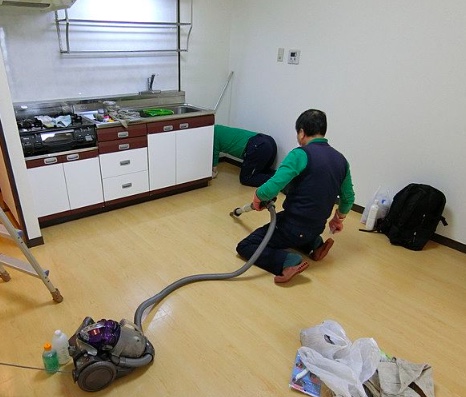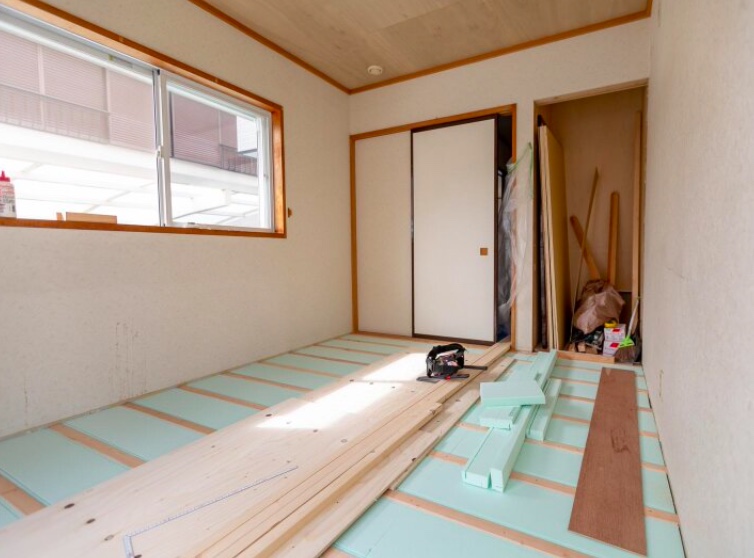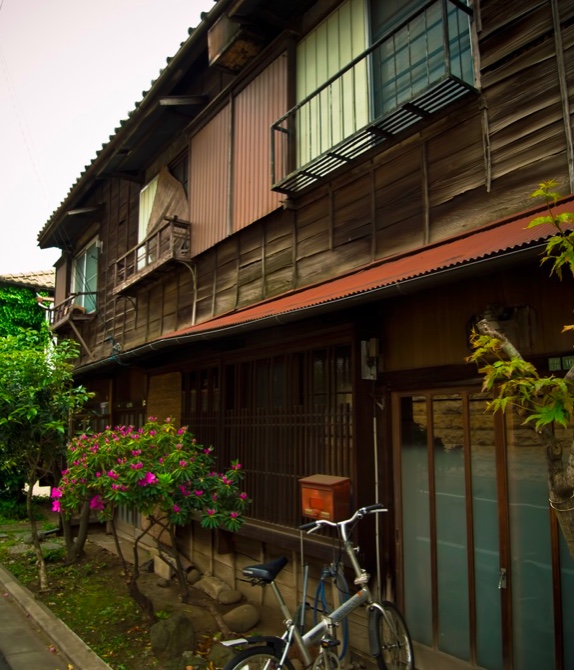When you live in a big city like Tokyo or Osaka, the most expensive thing to pay is the rent. In this article, I will explain how to reduce the cost of rent in Japan.
Breakdown of rent
In order to reduce the cost of rent, you first need to understand the costs involved. The money you need to start a new life can be divided into the following categories.
- Shikikin
- Key money
- Rent
- Brokerage fee
- Common service fee
- Renewal fee
Shikikin

Shikikin is the money deposited at the time of signing a lease. For landlords, it is risk-averse money. In most cases, it is equivalent to one to two months’ rent. When you move out, the money is used to pay for the maintenance and cleaning of damaged equipment, stains, etc. (restoration).
However, if nothing special happens, the money will be returned to you when you move out. This is reasonable as it is only the money you are depositing. To be honest, there is little merit in negotiating a lower price when negotiating rent. The initial cost of starting a new life in Japan is indeed low, but what kind of money should you use to cover the restoration cost when you move out?
At Shikikin, you will be charged a reasonable amount of money to restore the property to its original condition, and you will rarely be charged more than that. If you have not deposited a security deposit, that is a different story. It is a risk of not knowing how much you will be charged.
As a result, since the Shikikin will be used to restore the property to its original condition when you move out, you should leave a reasonable amount of money.
The exception to this is rental properties that do not have a shikikin from the start. Otherwise, it is not advisable to bargain for the deposit.
Reikin (key money)

Reikin is the initial cost when you sign a new contract. As the name suggests, it is money to thank you. Unlike a security deposit, it does not come back.
The flow of this money is as follows: renter -> landlord -> payment for advertising, etc. -> real estate agent. In other words, this money is paid from the landlord to the real estate agent who manages the property as advertising and other money.
In fact, this is the rent that is easy to negotiate. Since it is not paid to the landlord but to the real estate agent, it is easy to negotiate the rent with the real estate agent.
If the room can be filled by lowering the key money, the landlord may be able to compromise. The advertising fee paid to the real estate agent is between the landlord and the real estate agent, so there is no need to worry about it here.
The market rate is one to two months of rent, but it can be as low as 0.5 to 1 month, depending on the negotiation. In some cases, the rent can be reduced to zero.
Rent

This is the amount of money you pay on a regular basis after renting a property. This is the money that people generally imagine when they hear the word “rent.
In many cases, rent cannot be lowered significantly if you are thinking of haggling. The reason is that it is the most important income for a landlord.
The rent itself also depends on the market and the occupancy status of the property. If the property is in a similar situation, there will not be a big difference.
As you can see, there are no factors that can lower the rent significantly. At most, it will be a few thousand yen. Of course, even if it is not a big monthly saving, it can be a big advantage if you live there for a long time.
In fact, it is often more profitable to have the deposit and key money reduced to zero if you plan to stay for a year or so. If you plan to stay longer than that, you may want to negotiate the rent.
In fact, you may be able to lower the rent by a few thousand yen. This applies to cases where the landlord has enough income or the property is between new and used.
Even if the rent reduction does not pass, you can ask for repairs or replacement of facilities instead. This is a different perspective from saving money, but it is important to ensure the comfort of your residence.
It is also a good idea to negotiate the rent with the real estate agent without any ingenuity, but you may want to consider some other options, such as negotiating the free replacement of old air conditioners, etc., under the guise of negotiating the rent.
Brokerage fees

Brokerage fees are a source of income for the real estate agent, not the landlord. It is nearly impossible to get them to negotiate for the amount you want. Even if you are negotiating the rent, it is the most difficult money to deal with and should be put on the back burner. It is the final stage of negotiation and the breaking point.
Moreover, it is safe to say that you will never get zero yen. The market rate for brokerage fees is the equivalent of one month’s rent. Again, it won’t be easy to bargain here.
Common service fee

This is the money you pay for the use of common areas such as apartments and condominiums. The market rate is said to be between 5% and 10% of the rental fee.
If you are concerned about this fee, you should look for a place that does not charge it from the beginning. Many people ignore it, but sometimes it is secretly included in the rental rate.
If you try to negotiate this part down, they probably won’t respond very well because of the favoritism compared to other residents.
In the first place, this is the part where you cannot expect to save much money.
Renewal fee

After signing a lease contract, you will need to pay a renewal fee once every two years. It is easy to forget about it because it is only once every two years. It’s easy to forget about it since it’s only once every two years, but you should be careful not to run a deficit.
If you want to bargain for the renewal fee, it would be good to have some information about the current market price compared to two years ago. You can negotiate both the rental fee and the renewal fee at the same time.
If anything, you should consider the time of renewal fee as the time to negotiate the rent. Since you have now established a track record of renting for a long time, you will not be ignored.
Rent Negotiation

The idea of rent negotiation is to cut off the inconveniences or weak points that the property you are planning to rent has and ask for a price reduction in exchange for putting up with them.
If possible, a situation where the tenant has the upper hand is preferable. For the landlord, having a vacant room is a loss of opportunity for rental income. If the landlord does not like this loss of opportunity, it is easy for the tenant to become dominant.
Even if there is room to lower the rent, the landlord will not basically cut the rent. Even if there is an opportunity to negotiate for a lower rent, there will not be many chances.
In order to successfully negotiate and lower the rent, you should consider the following five tips and find the points that are advantageous to you.
Target properties that are older

It is easier to negotiate rent for a property that is 10 or 20 years old. In particular, the quality of the facilities will be a focal point. In fact, there are opportunities to negotiate rent even for properties that are shorter in age. In fact, due to the evolution of construction technology and changing needs, the property is now considered outdated after 7 years.
However, a property that is 7 to 10 years old may have a rent close to that of a new building. On the other hand, anything older than this is basically one or more years cheaper than new construction and often at a reasonable rent. Your best bet would be to look at properties that are about 7 to 10 years old. Facilities that would not have been provided about 7 years ago are rapidly becoming available these days, and it is often impossible to get the same rent as a new building.
In this respect, it is easy to get an opportunity to negotiate the rent by comparing the progress of construction technology and facilities with the current properties.
Target properties owned by real estate agents

Properties owned by real estate agents, so-called “in-house properties,” are a good target. Naturally, there is no need for brokerage fees since the real estate agent does not act as an intermediary. This will reduce your initial costs and make it easier to move in.
Real estate agent salespeople also give priority to recommending properties (they want to fill their properties first), so in some cases, there will be competition. Rent is not generated until there is a tenant. If your property has not been rented for a long time compared to other properties you own, you will want to get tenants as soon as possible. If you show interest, there may be room for some bargaining.
Unlike managed properties, the company’s own properties simply suffer a loss if there are vacancies. They will give priority to recommendations, and some concessions may be possible.
Avoid the time of year when people are moving

If you want to bargain for rent, you need to avoid the time of year when people are actively moving. If you want to negotiate a lower price, timing is important.
The reason why the time of year when many people are moving is unsuitable is that it is the peak season for the industry. When rental properties are filled with tenants without daring to offer any kind of service, no agency will be willing to negotiate for a lower price.
Especially during February and March, it is unlikely that rent negotiations will be successful. It is possible after April when things settle down. The next peak season is in August. They may be willing to negotiate if you are willing to leave four months of vacancy. In the end, the timing when renters have the upper hand is from April to July. Try not to miss the time when it is easy to start rent negotiations.
Find out the disadvantages by inspecting the property

It is important to preview the property you are going to rent. Use the information you get from the inspection to start negotiating the rent. These are the factors that make the other side willing to negotiate the rent, the week points. For example, bad sunlight, noise, and so on.
The environment of the surrounding streets is also important. For example, if the room is on the first floor and faces the road, you may be able to bargain. If there is a lot of traffic, the noise will be a cutoff point, and security issues are also.
Find out the weak points of the rental property and negotiate the rent to your advantage. When inspecting the property, focus on areas that may be inconvenient to live in. This will be useful for more than just bargaining.
Aim for properties with many vacancies

It is easy to bargain for rent when there are many vacant rooms in a rental property. For a landlord, a lot of vacancies mean that no income is generated. Instead of losing opportunities, they would rather have tenants move in even if they have to lower the rent slightly. The fact that there are many vacancies means that it is easy to establish a situation of tenant dominance.
However, real estate agents are not in a hurry to lower the rent unless it is their own property. This is even if they are in a situation where they can actually lower the rent. Let’s start rent negotiations from the renter’s side.
Nowadays, you can find vacancy information on the Internet. If you find a rental property that you like, check the vacancies around it as well.




Comments